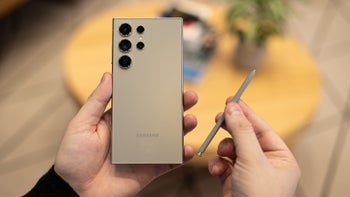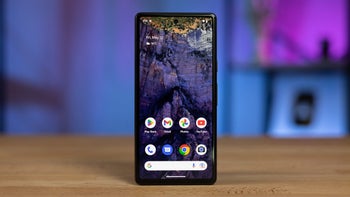Don't buy a cheap phone
This article may contain personal views and opinion from the author.

Don’t do it.
You hear the cliche every once in a while: “cheap phones are now good, good phones are now cheap”. My co-worker Rado tries to convince you it’s a good idea to buy one right now, and he even goes on to argue that the only reason why people buy expensive phones these days is for bragging rights.
While there is certainly a lot of truth to the argument that cheap phones are becoming better, this doesn’t mean that you should buy one. Yes, you, the person reading these lines, not some imaginary person in the world. If you take the time to read about technology and appreciate it: you deserve a great phone. Don’t settle for less.
So let me start by busting some myths, and the first one is that buying a cheap phone will save you money. What you will do is you will pay less upon purchase, that’s certainly true. But your average budget Android phone will only get one or two major software updates, and chances are its security will be compromised after that. Its slower processor will start showing its age faster. Its lesser storage will get bogged down quicker. Its camera will miss important moments. You will want to switch away from it faster. It won’t last as long: physically and performance-wise. So yes, you will pay less outright for a budget phone, but chances are that you will need to replace it sooner.
You hear the cliche every once in a while: “cheap phones are now good, good phones are now cheap”. My co-worker Rado tries to convince you it’s a good idea to buy one right now, and he even goes on to argue that the only reason why people buy expensive phones these days is for bragging rights.
Myth #1: Cheap phones save you money
So let me start by busting some myths, and the first one is that buying a cheap phone will save you money. What you will do is you will pay less upon purchase, that’s certainly true. But your average budget Android phone will only get one or two major software updates, and chances are its security will be compromised after that. Its slower processor will start showing its age faster. Its lesser storage will get bogged down quicker. Its camera will miss important moments. You will want to switch away from it faster. It won’t last as long: physically and performance-wise. So yes, you will pay less outright for a budget phone, but chances are that you will need to replace it sooner.
Myth #2: Cheap phone cameras are "good enough"
The second big myth around budget phones is that their cameras are now “good enough”. And there are certainly some phones that have raised the bar in that regard: the Pixel 3a series and the iPhone SE 2020. But the vast majority of budget phones have not: the Galaxy A51, for example, has a decent camera, but will decent do for that once-in-a-lifetime vacation to Disneyland? Would you settle for a “decent” camera that may or may not capture that special evening out with a loved one or the first steps of your toddler? Budget phone camera may have become better but they are not equal to flagship ones: they usually work slower when sometimes you need to take that picture right away, they don’t have such good video recording capabilities, they miss important zoom or ultra-wide cameras, or when included those cameras lack in quality. Don’t settle for a budget phone if you care about photos.
Another big drawback of budget phones that you won’t see on a specs sheet is just the experience of using them. For example, most budget phones come with weak haptic feedback. That might seem like a small issue, but in real life, chances are you will be getting dozens of notifications and your phone will be buzzing constantly throughout the day. Are you ready to be annoyed by its terrible vibration every single time?
Last but definitely not least, getting a cheap phone means getting a screen that just doesn’t look great. The screen is something you look at in every interaction with your phone. It’s a quintessential part of the smartphone experience. Many people make the mistake of equating a screen to its resolution or size, but what truly matters is color reproduction, brightness, viewing angles and other metrics you will simply not see on a specs sheet. Are you ready to settle for a bland-looking display or would you rather treat yourself to a beautiful picture every time you look at your phone. I know I wouldn’t compromise on that.
So yes, budget phones are getting better, and that’s great news. But... right now, buying cheap means missing out on the most fun and exciting features. That would be just fine for someone who barely uses their phone and if you are that person, don’t hesitate and get that Moto G phone or iPhone SE, or Pixel. But if you are the kind of person reading these lines, the one who gets excited by new technology, don’t cut down on your passion! Don’t do it. Treat yourself to something that will reward you with a great experience, something that you will actually enjoy using.
Myth #3: The small print
Another big drawback of budget phones that you won’t see on a specs sheet is just the experience of using them. For example, most budget phones come with weak haptic feedback. That might seem like a small issue, but in real life, chances are you will be getting dozens of notifications and your phone will be buzzing constantly throughout the day. Are you ready to be annoyed by its terrible vibration every single time?
Another often forgotten drawback of budget phones is the lack of fast and modern biometrics. For example, the budget iPhone SE features the Touch ID fingerprint sensor instead of the much more convenient Face ID 3D recognition system. Again, this doesn’t sound like a huge deal, but unlocking the phones for tens or even hundreds of times each day for years… it’s kind of a big deal.
Myth #4: It's all about the screen
Last but definitely not least, getting a cheap phone means getting a screen that just doesn’t look great. The screen is something you look at in every interaction with your phone. It’s a quintessential part of the smartphone experience. Many people make the mistake of equating a screen to its resolution or size, but what truly matters is color reproduction, brightness, viewing angles and other metrics you will simply not see on a specs sheet. Are you ready to settle for a bland-looking display or would you rather treat yourself to a beautiful picture every time you look at your phone. I know I wouldn’t compromise on that.
So yes, budget phones are getting better, and that’s great news. But... right now, buying cheap means missing out on the most fun and exciting features. That would be just fine for someone who barely uses their phone and if you are that person, don’t hesitate and get that Moto G phone or iPhone SE, or Pixel. But if you are the kind of person reading these lines, the one who gets excited by new technology, don’t cut down on your passion! Don’t do it. Treat yourself to something that will reward you with a great experience, something that you will actually enjoy using.










Things that are NOT allowed: